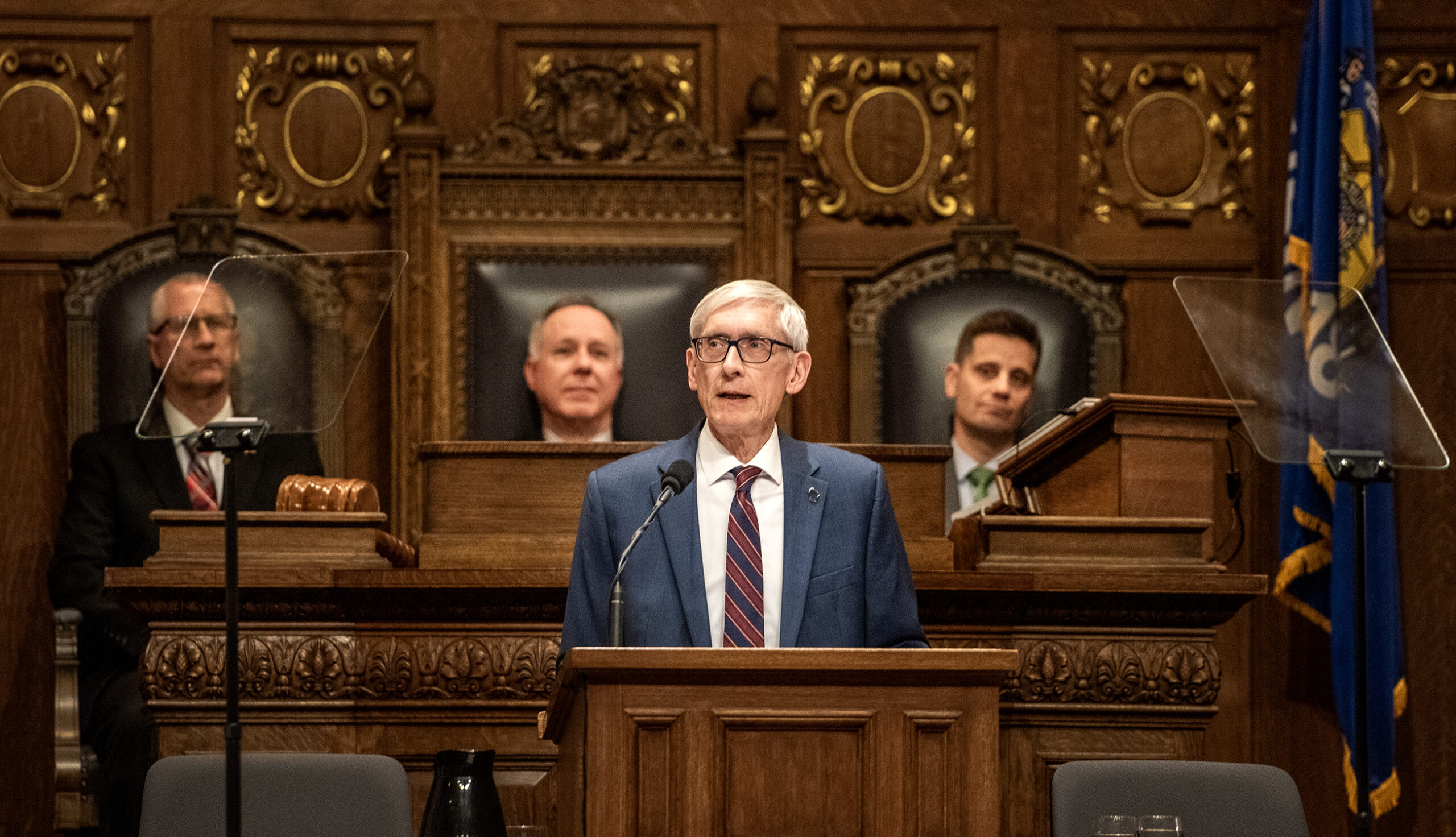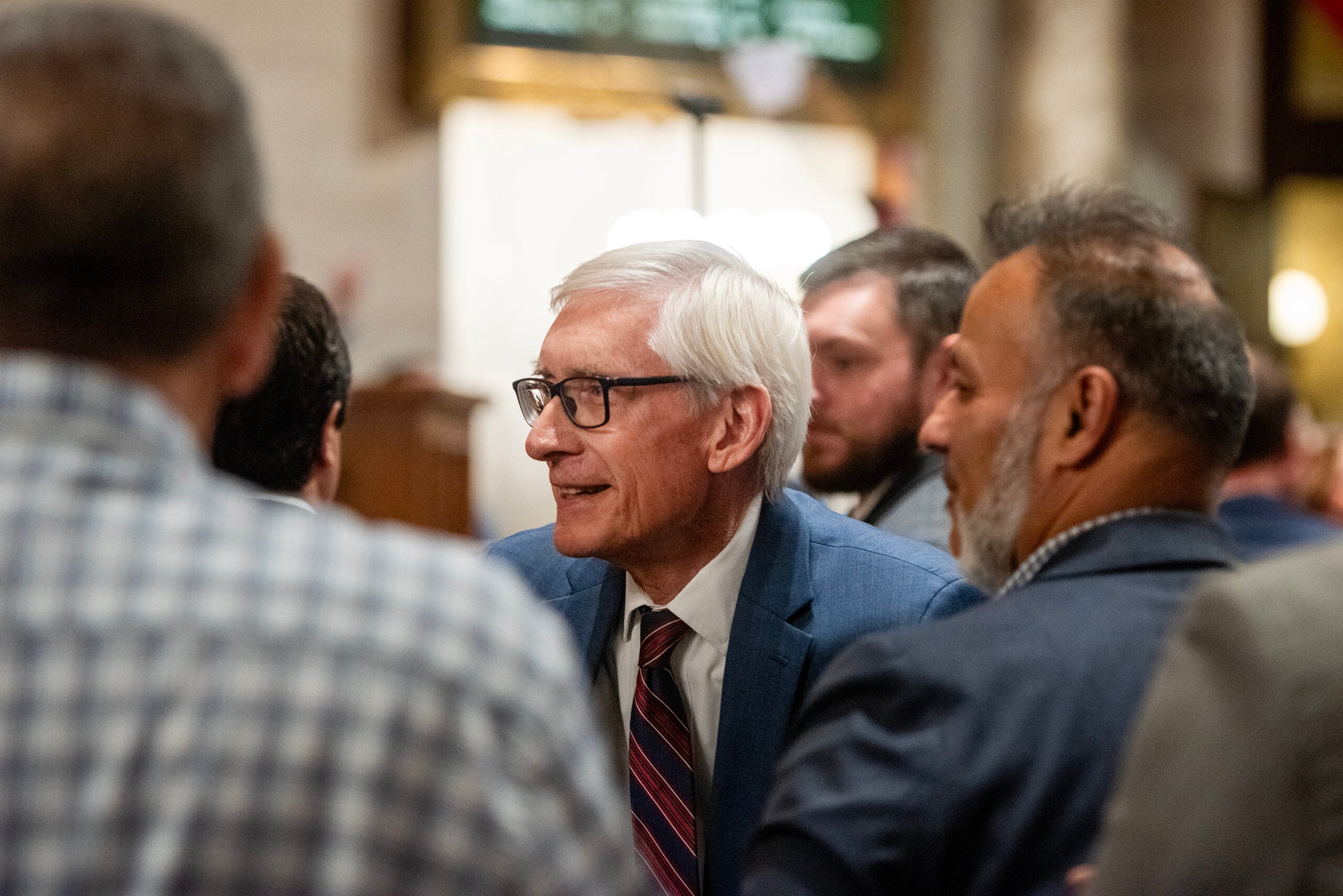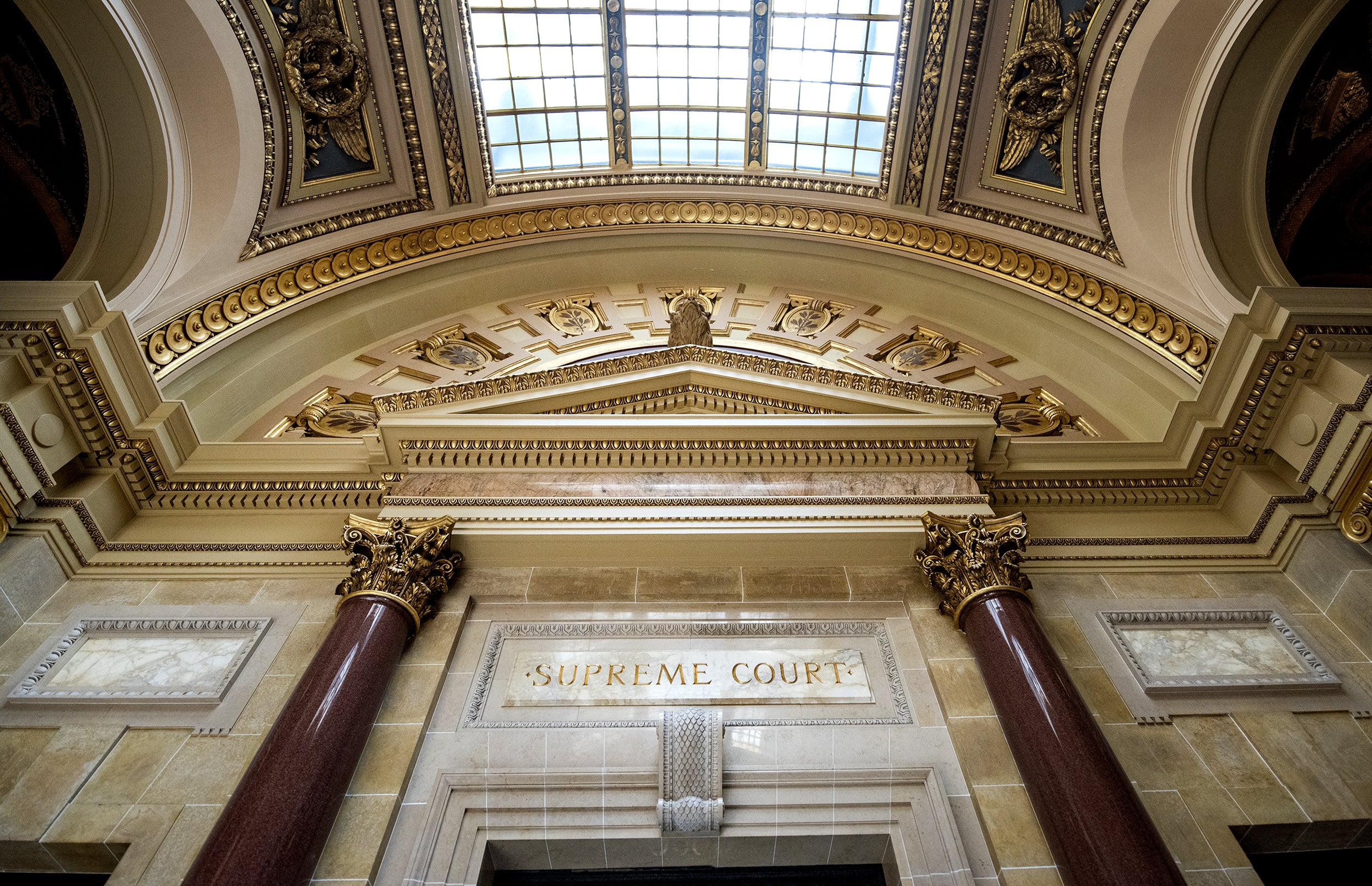GOP lawmakers overstepped their constitutional authority when they used a committee to block certain gubernatorial actions, Wisconsin’s Supreme Court concluded in a 6-1 ruling.
Friday’s near-unanimous decision hands a major victory to Democratic Gov. Tony Evers, who filed a lawsuit arguing legislative committees like the GOP-led Joint Finance Committee violated the separation of powers established in Wisconsin’s Constitution.
The lawsuit cited moves by the committee, such as blocking the ability of Evers’ Department of Natural Resources to acquire land for conservation using funds that had already been earmarked by the full Legislature.
News with a little more humanity
WPR’s “Wisconsin Today” newsletter keeps you connected to the state you love without feeling overwhelmed. No paywall. No agenda. No corporate filter.
In circumventing the DNR’s ability to carry out those purchases for what’s known as the Knowles-Nelson Stewardship Program, Wisconsin’s budget-writing committee “intruded” on executive power, six justices concluded.
“Maintaining the separation of powers between the branches is essential for the preservation of liberty and a government accountable to the people,” conservative Justice Rebecca Bradley wrote in the majority opinion. “By placing the power of the executive branch to carry out the law in a committee of the legislature, the legislative branch subsumed the executive power.”
Evers called the ruling a “victory for the people of Wisconsin” in a statement Friday.
“Republican lawmakers have spent years giving themselves outsized influence and power that they’ve used to unconstitutionally obstruct basic government functions and prevent my administration from doing the people’s work,” the statement said. “I’ve spent years working against near-constant Republican obstruction, and this historic decision rightfully resets constitutional checks and balances and restores separation of powers.”
Joint Finance Co-Chairs Sen. Howard Marklein, R-Spring Green, and Rep. Mark Born, R-Beaver Dam, said the decision was an “unfortunate” reversal of longstanding, “key components” of the land stewardship program that have been in place under both Democratic and Republican administrations.
“These provisions have ensured taxpayer resources are spent wisely and that local communities and stakeholders have had a seat at the table on important projects impacting their area,” the statement said. “This decision removes our current legislative oversight process. Our entire stewardship program is now in jeopardy.”
Evers has long been engaged in a tug of war over authority with Wisconsin’s Legislature. Republicans hold a majority in both Wisconsin’s Senate and Assembly, but are just shy of the Assembly supermajority needed to override vetoes from the governor.

The head of Wisconsin’s department of education celebrated Friday’s ruling, indicating that impacts will be felt broadly across state agencies.
State Superintendent Jill Underly urged the Joint Finance Commission to send out $50 million in funding that’s been approved by the full Legislature with the governor’s sign-off for implementing a new early literacy program.
“Today’s Supreme Court decision is a clear message to the Legislature that now is the time to refocus our energy on the needs of kids,” Underly said in a statement. “There can be no further delay, as local schools need to be ready to go on the first day of school. As I’ve said before, our kids are the ones who pay the price when adults hold students hostage and keep playing political games.”
Additionally, the governor is in the midst of a dispute with the Joint Finance Committee over the release of $125 million to clean up harmful chemicals known as PFAS.
Although Wisconsin’s elected Supreme Court seats are officially nonpartisan, justices seen as liberal have held a 4-3 majority since last August. Chief Justice Anette Ziegler filed the lone dissenting opinion in the legislative powers decision.
Ziegler, a conservative, wrote there was no good reason for the court to “fast-track” the JFC’s handling of land conservation purchases ahead of other other matters brought to the court.
“Consistency has not always been the new majority’s strong suit, but when it comes to picking political favorites, they have been unwaveringly faithful to the cause,” Ziegler wrote. “Instead of allowing this case to proceed through the process, sifting and winnowing the issues, and then taking all the issues at the same time, which would serve to produce consistency, they forge on. Selecting an issue that only impacts the Republican-controlled legislature and the longstanding Knowles-Nelson Stewardship Program should raise eyebrows.”
Justices heard oral arguments in the case this April.
Wisconsin Public Radio, © Copyright 2025, Board of Regents of the University of Wisconsin System and Wisconsin Educational Communications Board.





